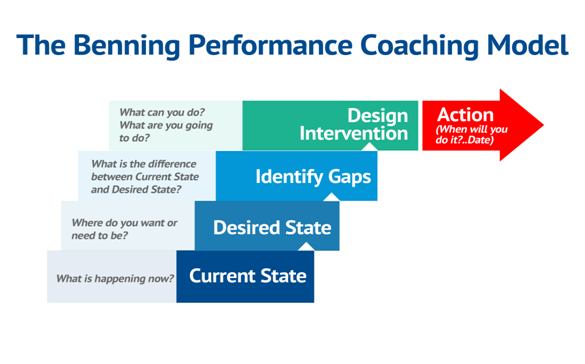A Coaching Power Tool by Michelle Benning
(Performance Coach, UNITED STATES)
The problem in my life and other people’s lives is not the absence of knowing what to do, but the absence of doing it. – Peter Drucker
How does a swimmer who has won 16 Olympic medals (see Wikipedia entry)—six gold and two bronze at Athens in 2004, (see Wikipedia entry) and eight gold at Beijing in 2008, winning more medals than any other athlete at both of these Olympic Games – fail to medal in his signature race? It’s Michael Phelps first time exiting a Summer Games event empty-handed since his first Olympics in 2000
Usain Bolt – the ‘undisputable’ track and field star and holder of five-time World and three-time Olympic gold medalist. He is the world record and Olympic record holder in the 100 metres, the 200 metres and (along with his teammates) the 4×100 metres relay. Yet, in the past few months, he has been beaten twice by team mate Johan Blake – and his dominance has been damaged.
In his best seller, Good to ‘Great, author, Jim Collins says,
Good is the enemy of great.
Is success the birthplace of complacency and the death of motivation?
Complacency
The American Heritage® Dictionary of the English Language: Fourth Edition. 2000, defines Complacency as “A feeling of contentment or self-satisfaction, especially when coupled with an unawareness of danger, trouble, or controversy.”
It is said that success breeds complacency. And that is one of the reasons that we have so little that becomes great. We don’t have great schools, principally because we have good schools. We don’t have great government, principally because we have good government. Few people attain great lives, precisely because it is easy to settle for a good life. The vast majority of companies never become great precisely because they become quite good. And that is their main problem.
Take the cases of Michael Phelps and Usain Bolt, how does one continue to be successful over time – it is in the continual motivation and run from complacency. Why is it so easy to settle for good? Do we have a natural tendency to move toward a state of apathy?
Self Application
We can become complacent when we are overly comfortable with a process, situation or even lifestyle. It is like you have found a comfortable spot in a big comfortable warm chair and you have all that you need today around you – the fire’s going and you have a good book. And, you do not plan on getting up and going outside – you’re not sure what the weather is like – there may be scary things out there, there are so many things you need to know to go out – and really there is no need to bother because you are comfortable and you feel safe! You may believe the whole the point of life is to seek comfort which seemingly is a good place to be – it is not. It is to grow and to live. Comfort is a settling in. To continue in growth is to inject a little dis-comfort into our life. It can mean moving out of our comfort zone. For many, they have struggled and worked to get where they are – and are not motivated to move because they are complacent and comfortable!
Motivation
Motivation is the psychological feature that arouses us to action toward a desired goal and elicits, controls, and sustains certain goal directed behaviors.
Motivation is literally the desire to do things. It’s the difference between waking up before dawn to pound the pavement and lazing around the house all day. It’s the crucial element in setting and attaining goals—and research shows you can influence your own levels of motivation and self-control.
Quite often, we are not fully aware of our level of motivation, and it is the role of the coach to increase the awareness. Having a coach can move you from the level of complacency to motivate you to reach new heights.
Coaching Application
Moving from a state of complacency to a place of motivation.
As coaches, we can use the levels of development as a tool to help our clients identify where they are currently and help to move them from a state of complacency to a place of motivation.
Using the model – we look at the 4 stages of development.
- Unconsciously Incompetent – you don’t know what you don’t know
- Consciously Incompetent – you know what you don’t know
- Consciously Competent – you know what you know
- Unconsciously Competent – you can do what you know without thinking
Complacency can come from being Unconsciously Competent – that is you know how to do something so well that you can do it in your sleep. Think about driving – you do this without thinking. Now think about taking your driving test today – would you pass?
Motivation – comes from remaining in a state of being Consciously Competent – being aware of how they are moving through life and getting things done – finding new areas – and repeating steps 1, 2, and 3.
In terms of this model, when we settle for good, we have crossed The Bridge of Complacency and Apathy and progressed to a comfort zone where we don’t know what we don’t know about our potential for improvement. Breaking out of that state occurs by crossing the bridge of Motivation.
